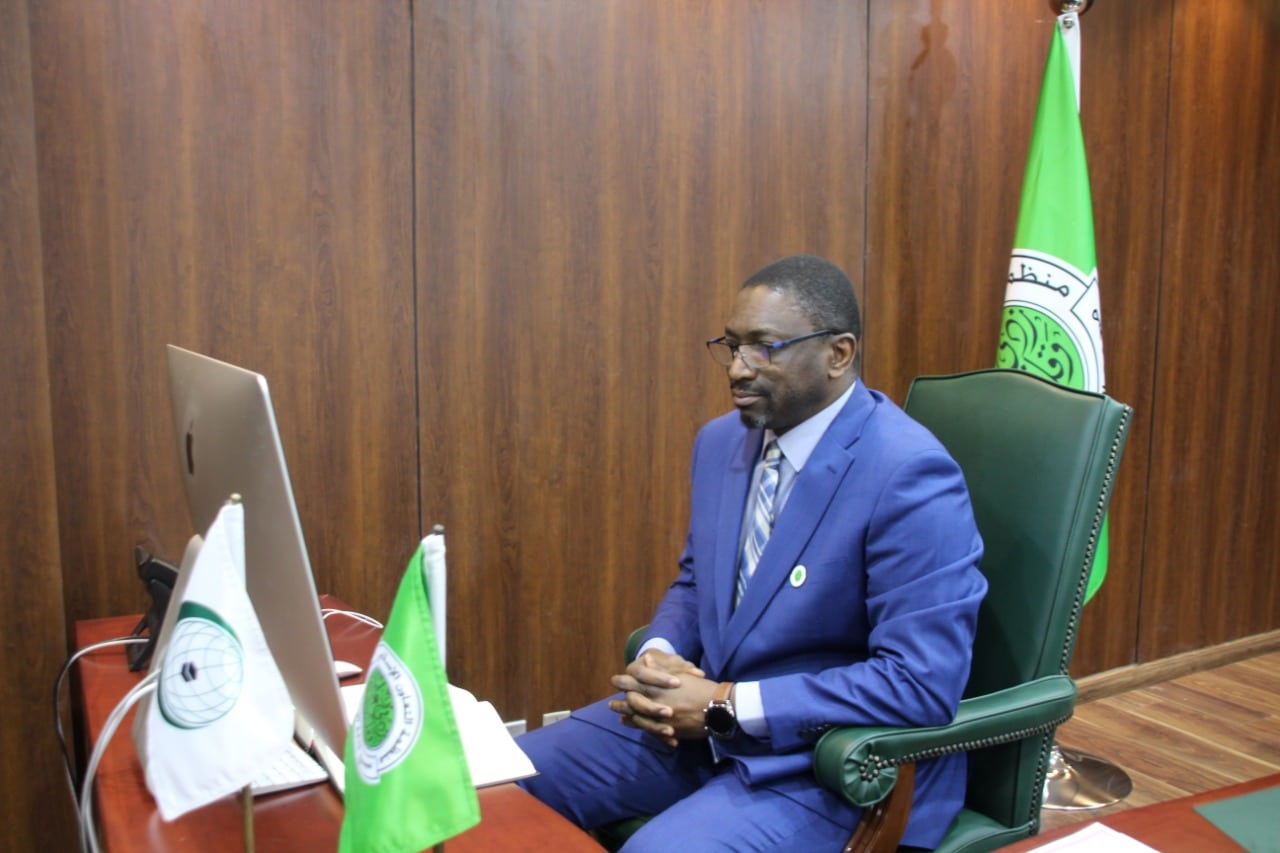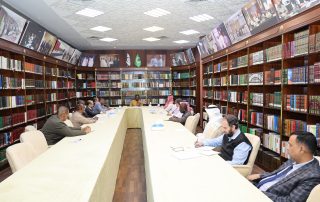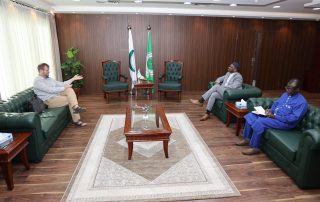
On Tuesday, Safar 21, 1443 corresponding to September 28, 2021, His Excellency Prof. Koutoub Moustapha Sano, Secretary General of the International Islamic Fiqh Academy(IIFA), participated in the United Nations Global seminar on the Role of Islamic Social Finance in Achieving Sustainable Development Goal No. 13 of the United Nations related to climate change and social and economic issues and environmental issues that it poses to humanity, and explore ways to use this funding to provide the necessary support and relief to alleviate poverty and the effects of natural disasters on individuals and societies.
This seminar comes within the framework of the important initiative launched by the United Nations last May, in partnership with the Islamic Development Bank Group (IsDB), to initiate dialogue in order to support efforts to recover from the Corona pandemic and its dire economic and social effects, especially on the least developed countries and poor communities. The initiative aims to achieve the necessary resilience to strengthen the economies of the most fragile countries by introducing a new development methodology characterized by an inclusive and resilient base nature.
In his intervention, His Excellency the Secretary General of the Academy expressed his thanks to those in charge of this excellent initiative, which deals with a topic that Islamic Sharia has always given attention to, which is supporting the needy and those affected by natural disasters and economic and social crises. His Excellency explained that Islamic Sharia, in its entirety, addressed the issue of preserving the environment by prohibiting and preventing its abuse and destruction. The life of the individual on this universe is an integral part of the general environment in which man was created composed of humans, animals, and plants. His Excellency added that the preservation of the environment and the climate has become a necessity for the whole world today, which motivates us to apply the teachings, values and principles of Islamic Sharia that enable us to preserve our environment safe and sound, so that we stay safe and save the world from the consequences of violation and aggression on the environment.
With regard to the means of Islamic social financing that are available in Islamic Sharia to serve these goals and to achieve the minimum level of prosperity and social solidarity, His Excellency explained that Islamic social financing has multiple institutions, on top of which are three basic financial institutions that can serve these goals and provide appropriate solutions to such problems. These institutions are the Zakat Institution, the Waqf (endowments) Institution, and the Wills Institution. His Excellency clarified that these three institutions, with their contents and meanings, are able to achieve the aforementioned goals by utilizing their ability and capabilities to spend on projects and programs aimed at preserving the environment, and to provide relief to those affected by environmental disasters and the resulting crises. His Excellency also clarified the importance of strengthening cooperation between the Academy and the institutions active in the field of environmental protection and mitigation of the destructive effects of climate change resulting from random violation on the environment, considering that everyone is targeted with all the consequences of harming the environment, which requires strengthening solidarity and cooperation between institutions to protect the environment and help those affected by disasters and crises.
It is worth mentioning that the Academy had previously issued a resolution in which it approved the legality of providing support from zakat funds to the afflicted in areas of disasters, earthquakes, floods, and famines.
A number of eminent personalities in this field participated in the seminar, among them, for example, His Excellency Dr. Ahmed Al Meraikhi, Special Adviser to the UN Secretary General, and His Excellency Prof. Mehmet Asutay, Director, Durham Center for Islamic Economics and Finance.
Read Also
Lastest








